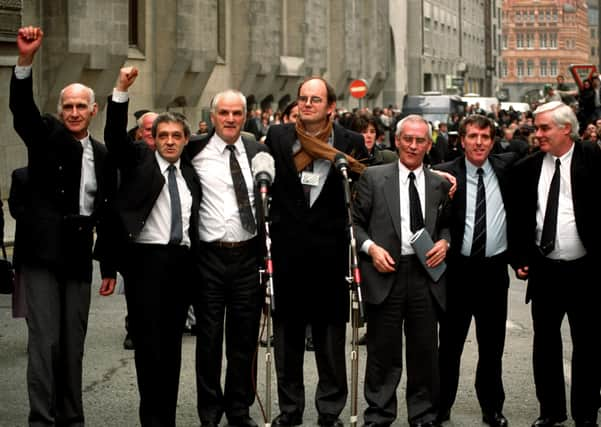Dublin would not stand bail for Birmingham Six including Derry man John Walker, declassified state papers show


The previously top secret papers outline the deliberations that took place within official circles in Dublin about the ask from the men’s high-profile solicitor Gareth Peirce.
Ms. Peirce made the request in late 1990 just months before the men finally walked free from prison after their convictions were quashed by the Court of Appeal in London. Bail was an option once the case had been referred to the Court of Appeal.
Advertisement
Hide AdAdvertisement
Hide AdDerryman John Walker, alongside Paddy Hill, Gerry Hunter, Hugh Callaghan, Richard McIlkenny and Billy Power, served seventeen years in prison after being wrongly convicted of murdering 21 people in the IRA pub bombings in Birmingham in 1974.
The exchanges between Ms. Peirce and a senior official in the Irish embassy in London and the official’s subsequent correspondence with high-ranking colleagues in Dublin are outlined in the papers released under the 30-year rule. On November 21, 1990, first secretary at the Irish embassy Paul Murray wrote to Dublin: “On the question of surety her (Ms. Peirce) request to the Government is for symbolic rather than practical reasons and I think that she may not push it.”
However, on December 10, Mr. Murray communicated that Ms Peirce was seeking an “immediate decision” on the issue as she wanted to lodge bail papers the following day.
The next day, assistant secretary at the Department of Foreign Affairs Dermot Gallagher outlined the pros and cons of providing surety in a document that was stamped as read by the then Taoiseach Charles Haughey.
He said the arguments in favour were “largely political but also some humanitarian”.